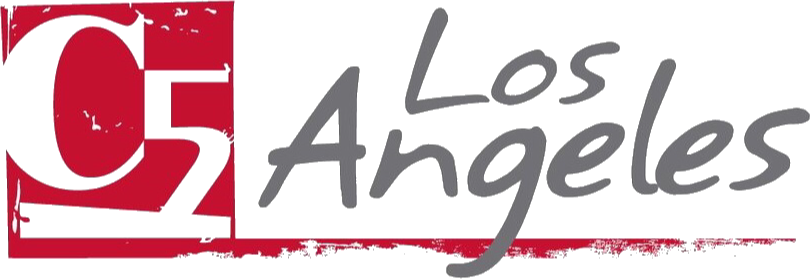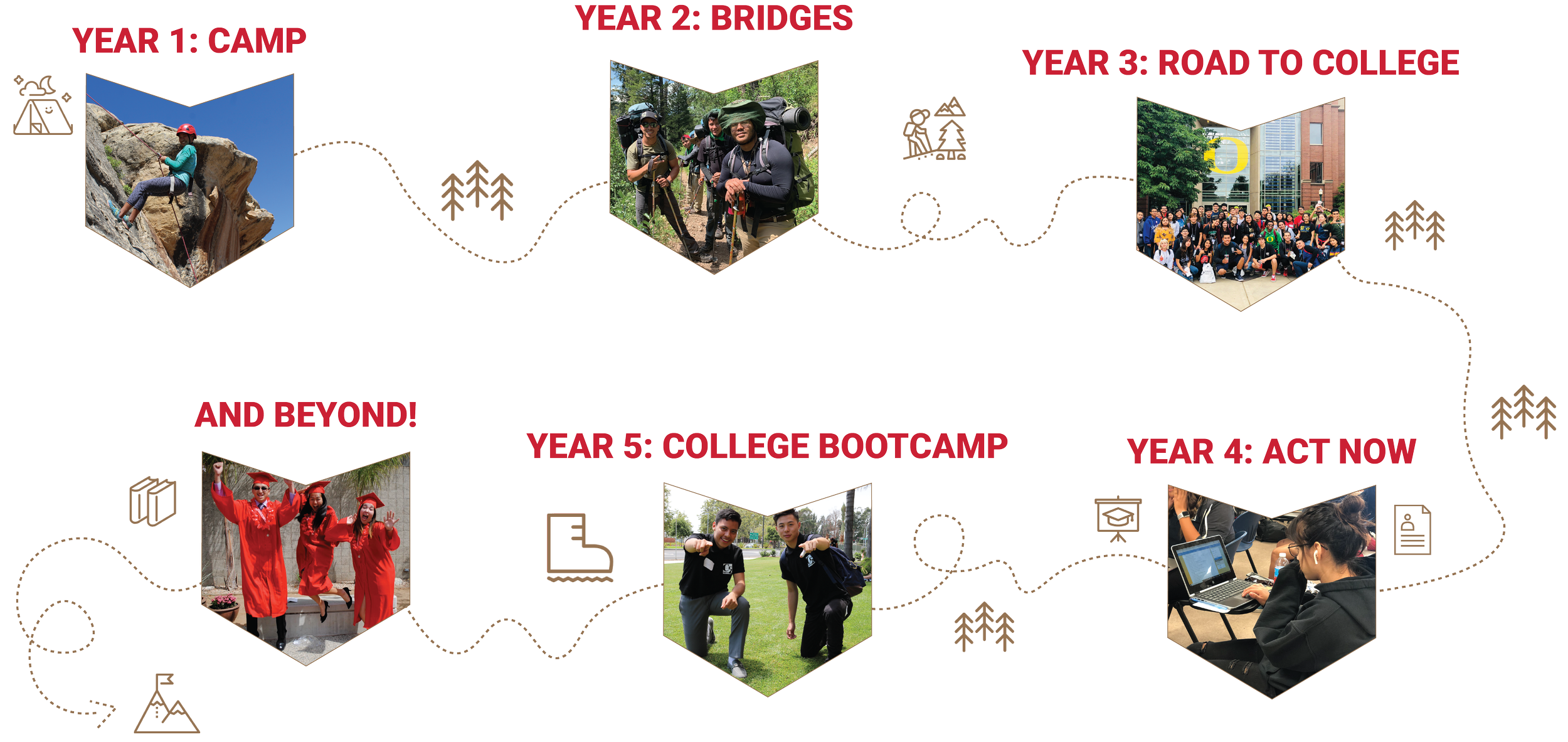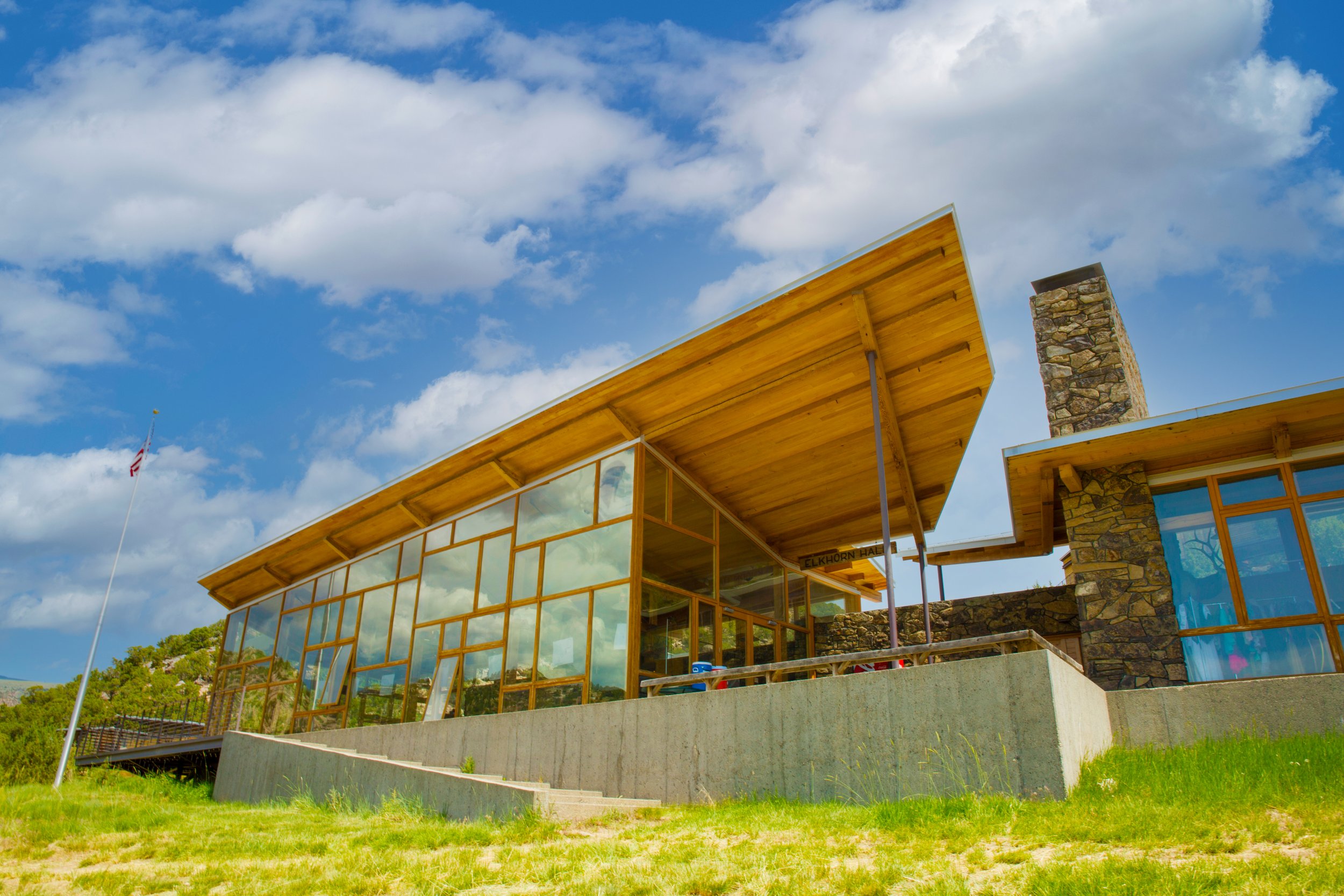Our Model
C5LA is a year round youth leadership and college/career access and success program. We identify high potential, under-resourced students in middle school and engage them in a multi-year initiative designed to support them through high school, into and through college and as they embark on their first career.
Our History
C5LA was founded in 1999 as the personal philanthropy of John Alm, retired CEO of Coca-Cola Enterprises. After seeing the impact that summer camp had on John Alm’s own children's confidence, self-esteem, and interpersonal skills, he developed a summer leadership camp for youth from Los Angeles who lacked the resources to otherwise afford the experience. John initiated a partnership with Los Angeles Unified School District (LAUSD) to recruit students who would benefit from a leadership development program and enlisted corporate support to realize his vision. What started out as a summer camp for LA teens has grown into a multi-year effort across the country with sites in New England, Texas and Georgia.
Our program is designed to push students beyond their comfort zones by engaging them in distinctive outdoor activities. We aim to instill cultural competence and foster engagement in community initiatives among our Leaders. Our model aims to foster resilience, nurture social-emotional intelligence, and assist our Leaders and their families in setting goals for their children.
We collaborate closely with our families, relying on their guidance and standing alongside them to ensure their child's success. Our responsiveness to the community's needs has led to multiple generations of students who are dedicated to creating a brighter future for themselves and their communities.
The Challenge
Youth living in poverty have less resources, fewer role models with college degrees, limited access to the support needed to graduate high school and lack the information needed to navigate the college application process.
For those first generation students who are able to make it to college, they lack knowledge of college systems and professional networks, have limited understanding of FAFSA and limited financial resources. They lack the emotional support from family, have a hard time fitting in and struggle with the “imposter syndrome” and avoid the stigma of being the first in their family to pursue their academic dreams.
California is projected to fall 1.1 million bachelor’s degrees short of economic demand by 2030. Economic barriers, lack of academic and emotional support and challenges with fitting in make it difficult for low-income, first-generation students to graduate college. (Source: “Improving College Completion”, October-2019, PPIC Higher Education Center)




